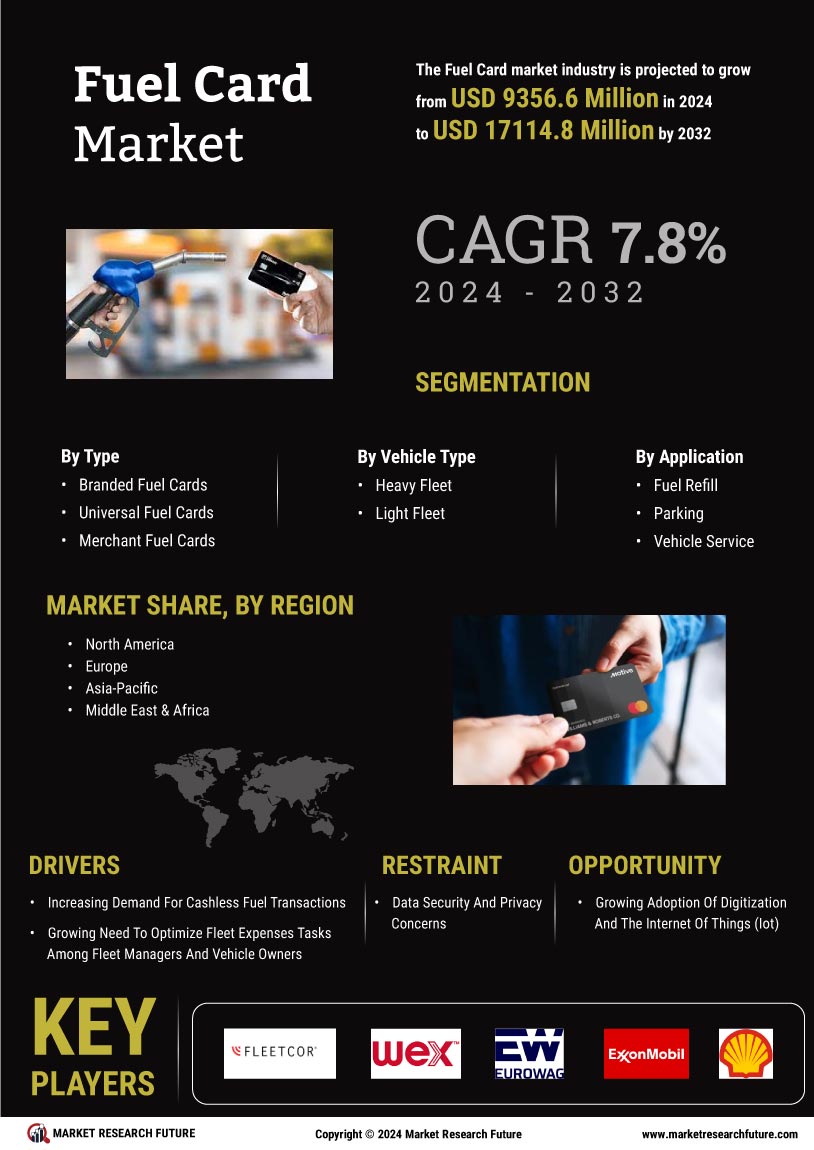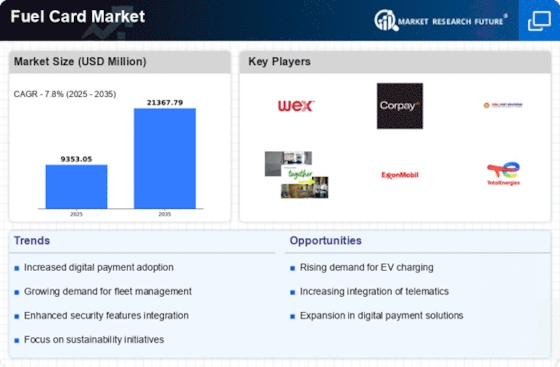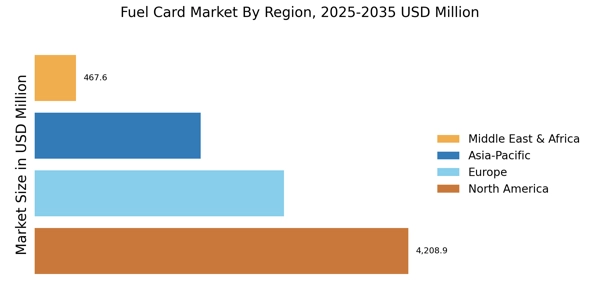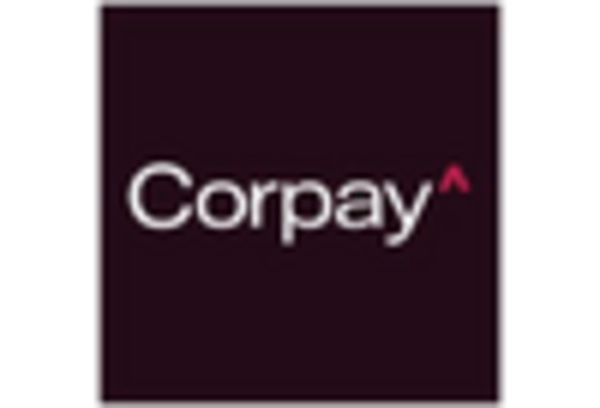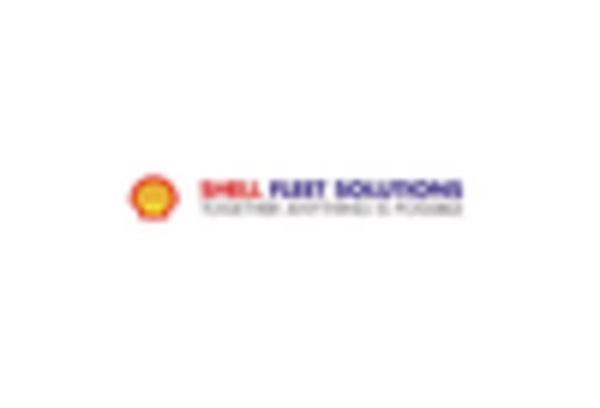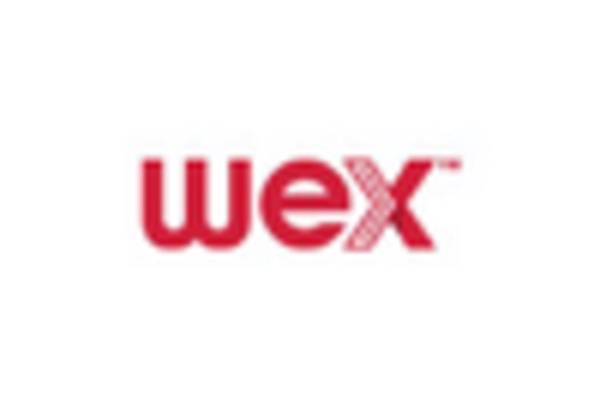Rising Fuel Prices
The Fuel Card Market is experiencing a notable surge in demand due to rising fuel prices. As fuel costs continue to escalate, businesses are increasingly seeking ways to manage their fuel expenditures effectively. Fuel cards provide a streamlined solution for tracking fuel purchases, thereby enhancing cost control. In recent years, the average price of fuel has shown a consistent upward trend, prompting companies to adopt fuel cards as a means of mitigating financial strain. This trend is particularly evident in sectors such as transportation and logistics, where fuel expenses constitute a significant portion of operational costs. Consequently, the Fuel Card Market is likely to witness sustained growth as organizations prioritize efficient fuel management strategies.
Enhanced Fleet Management Solutions
The Fuel Card Market is significantly influenced by the growing need for enhanced fleet management solutions. Companies are increasingly recognizing the importance of optimizing their fleet operations to improve efficiency and reduce costs. Fuel cards offer integrated solutions that allow businesses to monitor fuel consumption, track vehicle performance, and analyze spending patterns. This data-driven approach enables organizations to make informed decisions regarding fleet management. According to recent statistics, businesses utilizing fuel cards report a reduction in fuel expenses by up to 15%. As a result, the demand for fuel cards is expected to rise as companies seek to leverage technology for better fleet management.
Regulatory Compliance and Reporting
The Fuel Card Market is also shaped by the increasing emphasis on regulatory compliance and reporting requirements. Governments are implementing stricter regulations regarding fuel usage and emissions, compelling businesses to adopt solutions that facilitate compliance. Fuel cards provide detailed transaction records, which are essential for meeting regulatory standards. This capability not only aids in compliance but also enhances transparency in fuel expenditures. As organizations strive to adhere to these regulations, the demand for fuel cards is likely to grow. Furthermore, the ability to generate comprehensive reports simplifies the auditing process, making fuel cards an attractive option for businesses aiming to maintain compliance in a complex regulatory landscape.
Shift Towards Digital Payment Solutions
The Fuel Card Market is witnessing a shift towards digital payment solutions, driven by the increasing adoption of technology in financial transactions. Businesses are increasingly favoring cashless transactions for their convenience and security. Fuel cards, which often incorporate digital payment features, align with this trend by offering a secure and efficient method for fuel purchases. The rise of mobile payment applications and contactless transactions further supports this shift, as consumers and businesses alike seek faster and more reliable payment options. As the trend towards digitalization continues, the Fuel Card Market is expected to expand, catering to the evolving preferences of consumers and businesses.
Focus on Sustainability and Environmental Responsibility
The Fuel Card Market is increasingly influenced by the focus on sustainability and environmental responsibility. As organizations strive to reduce their carbon footprint, there is a growing demand for solutions that promote eco-friendly practices. Fuel cards can play a pivotal role in this transition by providing insights into fuel consumption patterns and encouraging the use of more efficient vehicles. Companies that utilize fuel cards often report a decrease in fuel consumption, contributing to their sustainability goals. This alignment with environmental initiatives is likely to drive the adoption of fuel cards, as businesses seek to enhance their corporate social responsibility efforts while managing fuel costs effectively.
